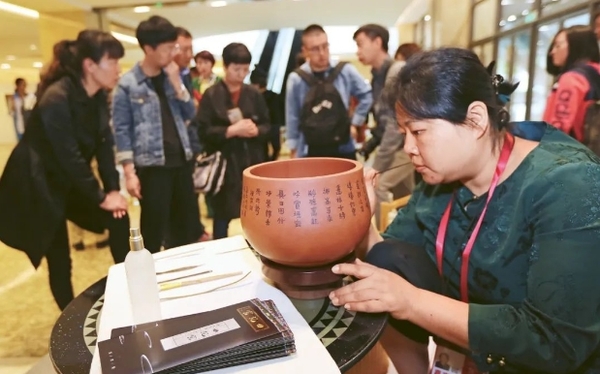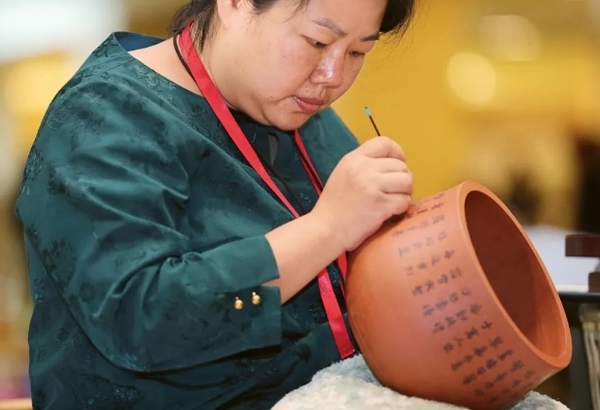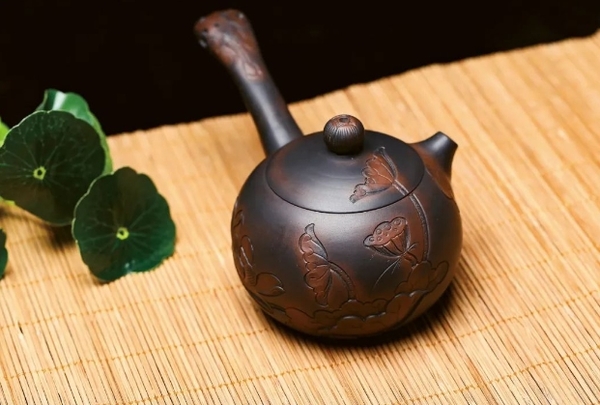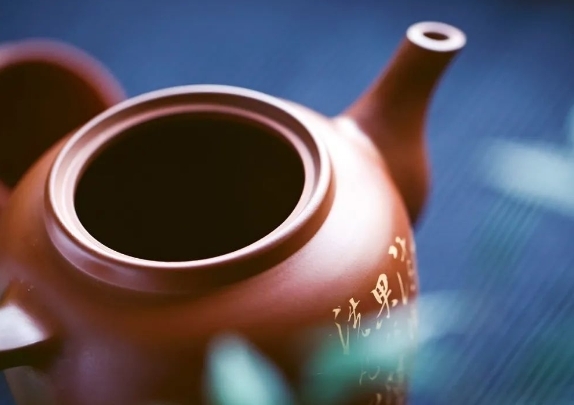Inheriting Craft Helps Woman Promote Hometown's Revitalization

As more and more Chinese have settled down in big cities, some rural areas (in China) have become desolate. What can local governments do to ensure rural residents have a greater sense of belonging to their home villages? That question has been plaguing Tian Jing, a member of the National Committee of the Chinese People's Political Consultative Conference (CPPCC), Vice-Chairperson of the Youth Federation of Honghe Hani and Yi Autonomous Prefecture, in southwest China's Yunnan Province. Tian is also a provincial-level inheritor of Jianshui (a county in the prefecture)'s purple-pottery-making craft, which was added to the list of the country's items of intangible cultural heritage in 2008. During the past decade, Tian has explored ways to integrate cultural and rural revitalization.
"Cultural inheritance is crucial for rural revitalization. Greater efforts should be made to promote Jianshui's purple-pottery-making craft, which, in turn, will promote the county's rural revitalization. During the past 10-plus years, I have put much effort into revitalizing the traditional craft, making it a powerful force to promote rural revitalization," says Tian.

Breathing New Life into Purple Potteries
During the past two decades, Tian has devoted her life to studying — and saving — the craft. She has solved many technically difficult problems, and she has developed purple-pottery items in more than 100 shapes. To promote the traditional craft, Tian established Taochaju Studio and Tianji Kiln, both on Jianshui's Zitao Street. The studio and kiln are both dedicated to producing purple-pottery items.
In November 2018, Tian visited several rural areas (in Dali and Nujiang) to conduct field research. Why? She wanted to explore ways to help impoverished rural women improve their pottery-making skills, so the women could help promote the intangible cultural heritage.
Within a short time after she returned to her hometown, in late 2018, Tian established a center (in Jianshui) to provide training, free of charge, to young people in poverty-stricken areas (in the county), to teach them how to make purple-pottery items. Many women have said they have benefited greatly from the training. They have been overjoyed as they have earned money by creating crafts. As the women work at home, they can take care of their parents and children.
During the past decade, Tian has taken on more than 300 apprentices, to promote the development of the traditional craft.

Enhancing Value of Intangible Cultural Heritage
In 2018, Tian was elected a deputy to the 12th People's Congress of Honghe Hani and Yi Autonomous Prefecture. Based on her experience in creating purple potteries, she made a proposal to include the promotion of intangible cultural heritage in the work of the government of Jianshui County, and to encourage inheritors of intangible cultural heritage, at all levels, to provide training to residents of poverty-stricken areas (in Jianshui), to help them improve their craft-making skills, so they could escape poverty by creating crafts.
During the Third Session of the 13th CPPCC National Committee (held in May 2020 in Beijing), Tian suggested vocational schools (in regions inhabited by ethnic minorities) should arrange for their students to attend courses, provided by inheritors of intangible cultural heritage, so the children could better understand the unique charm of traditional Chinese culture. Tian said that would contribute to the regions' efforts to cultivate successors to the traditional cultural heritage, and also enable the inheritors to choose outstanding graduates (of the schools) as their apprentices.

As a CPPCC member, Tian has made several proposals to strengthen the cultivation of inheritors of intangible cultural heritage. "In 2022, China's Ministry of Education gave a positive response to my proposal. So far, 162 vocational schools (across the country) have established experimental sites to promote ethnic cultural inheritance and innovation," Tian says. In 2023, Tian suggested China should develop more precise training goals and plans for cultivating inheritors of intangible cultural heritage, and also build a talent pool for the inheritors.
"My biggest wish is to pass on my pottery-making skills to more young people, so they can create a better life by making crafts. That, in turn, will promote rural revitalization. I also hope more people will understand the beauty of the art form," Tian says.
Photos from VCG and Tuchong
(Women of China English Monthly January 2024)
Please understand that womenofchina.cn,a non-profit, information-communication website, cannot reach every writer before using articles and images. For copyright issues, please contact us by emailing: website@womenofchina.cn. The articles published and opinions expressed on this website represent the opinions of writers and are not necessarily shared by womenofchina.cn.








.jpg)

 WeChat
WeChat Weibo
Weibo 京公网安备 11010102004314号
京公网安备 11010102004314号